Popular Airbnb experience Casual Crabbing with Tia is more than just a side hustle – for founder Tia Clark, it’s about representation, education and building connections to food sources
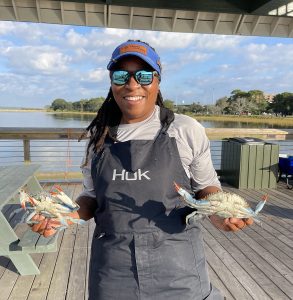
Tia Clark stands on the dock at Brittlebank Park, the heels of her rubber boots together, toes pointed outward, with a blue crab nestled in the “V” between her feet. As she reaches down to pick up the crab, Clark explains how to hold it without getting pinched – just one of the lessons guests will learn during a hands-on experience at Casual Crabbing with Tia.
Clark started hosting small groups on the dock in 2018, introducing them to the Callinectes sapidus (blue crabs) that are plentiful in the brackish waters of the Ashley River in Charleston, South Carolina.
During the two-and-a-half hour experiences, guests learn how to hold crabs, tell the difference between males and females, throw a cast net, pull traps and string lines and break down legal catch. Some guests take their crabs home on ice and others take them to Charleston Crab House, where the chef prepares them for supper. Everyone leaves with a better understanding of the crabbing industry and ocean-to-table seafood.
“Taking other people crabbing is exceptional,” Clark says. “It’s like reliving my first day [of crabbing] over and over again.”
Shellfish farm tours and experiences are gaining popularity with tourism bureaus launching “oyster trails” to promote mariculture adventures from coast to coast. A recent Boston Globe article called oyster tours “the new wine tours” that attract guests eager to learn about shellfish habitat, production and tasting.
With blue crab populations hitting historic lows in the Chesapeake Bay, hundreds of miles north of the South Carolina, Clark hopes that educating guests about the role the critters play in the ecosystem and the importance of sustainable harvesting can help preserve their populations.
Clark might operate a thriving shellfish tourism experience that’s lauded as one of the most popular Airbnb Experiences in the world, but the Charleston, South Carolina, native admits that she wasn’t always knowledgeable about shellfish or the crabbing industry.
Catching crab fever
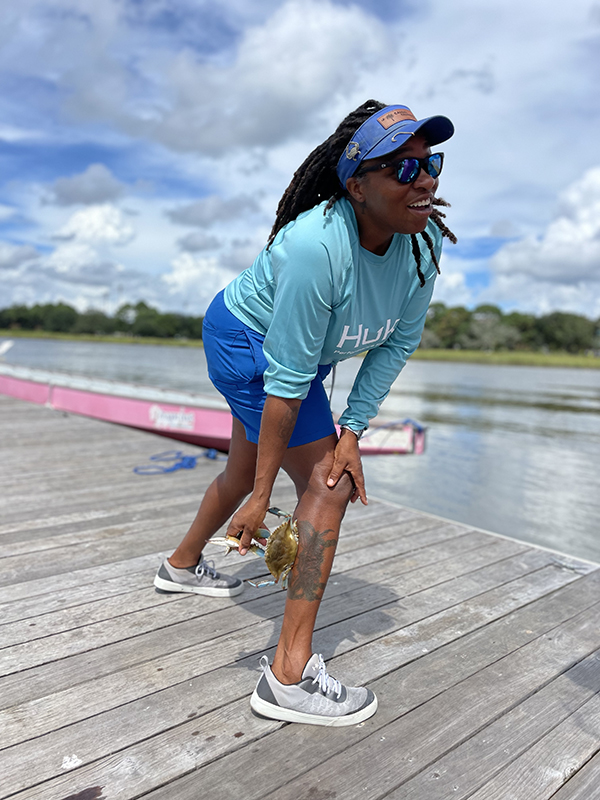
Growing up in the Geechee culture in coastal South Carolina, Clark says crabs were a mainstay in her diet and the centerpiece of family celebrations. But she only knew how to cook crabs, not how to catch them. In fact, Clark, 43, only started crabbing six years ago.
In 2017, a cousin took her crabbing at a park near the downtown Charleston neighborhood where she grew up and she quickly fell in love with being near the water and the rhythmic nature of tossing cast nets and pulling traps.
“We immediately started catching these big crabs and my head was exploding because … all the food that I’ve grown up eating was right there in my hands,” Clark said. “I was so stoked to be going home to eat those crabs. After that I started crabbing every day.”
Despite late shifts working in a local dive bar, Clark never missed a morning on the dock. She shared photos of her crabbing trips on Facebook and friends asked to tag along – but she wasn’t interested in having company (or building a company) so she often declined the requests.
In 2018, a friend sent her a link to a new Facebook page, Casual Crabbing with Tia. The page, established to encourage Clark to turn her passion into a business, had the intended effect: Clark started receiving messages from followers who wanted to go crabbing and she eventually acquiesced. Another friend told her about the new Airbnb Experiences platform that hosted activities led by local experts, and encouraged her to post her crabbing experience.
“I was like, ‘I’m not doing that’ and my wife started typing up the application,” she said. “Airbnb accepted it within a week and I hosted my first group from the Airbnb platform in July 2018.”
Since then, thousands of guests have stood alongside Clark on the dock, holding crabs and pulling traps, often for the first time. Casual Crabbing with Tia was named one of the top Airbnb Experiences in the world, and while Clark appreciates the accolades, she is more focused on educating guests than earning five-star reviews (although she has more than 600 of those).
It’s like reliving my first day [of crabbing] over and over again.
Casting a wide net
While Clark believes that everyone should learn about where their seafood comes from, she is especially passionate about providing experiences for guests who might not otherwise try catching shellfish.
Clark is a member of Minorities in Aquaculture, an organization founded by Maryland oyster farmer Imani Black, to “bridge the gap between minority women and sustainable seafood” to promote a more diverse and inclusive industry.
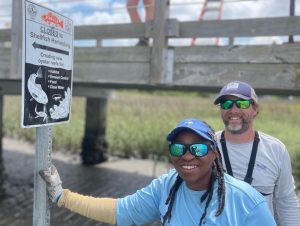
“Representation is so important [because] there’s a whole world of women that want to get to the water but they just don’t feel comfortable [doing so],” she said.
On the dock, curious onlookers often walk past Clark and head straight to her employee, Art Perry, to ask questions or talk shop. Those experiences remind Clark that introducing others to crabbing and promoting the idea that access to the water and its resources should be open to all is vital.
Hosting on-the-water experiences is one way Clark hopes to change the conversation about catching and eating fresh seafood.
“Every day I get to watch other people see the life that’s in the water and look at the water differently than they did when they got here,” she said. “It’s hard to not have a good time in this environment.”
Follow the Advocate on Twitter @GSA_Advocate
Now that you've reached the end of the article ...
… please consider supporting GSA’s mission to advance responsible seafood practices through education, advocacy and third-party assurances. The Advocate aims to document the evolution of responsible seafood practices and share the expansive knowledge of our vast network of contributors.
By becoming a Global Seafood Alliance member, you’re ensuring that all of the pre-competitive work we do through member benefits, resources and events can continue. Individual membership costs just $50 a year.
Not a GSA member? Join us.
Author
-
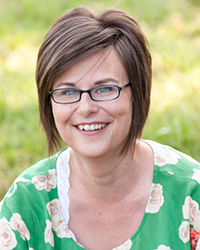
Jodi Helmer
Jodi Helmer is a North Carolina-based journalist covering the business of food and farming.
Tagged With
Related Posts
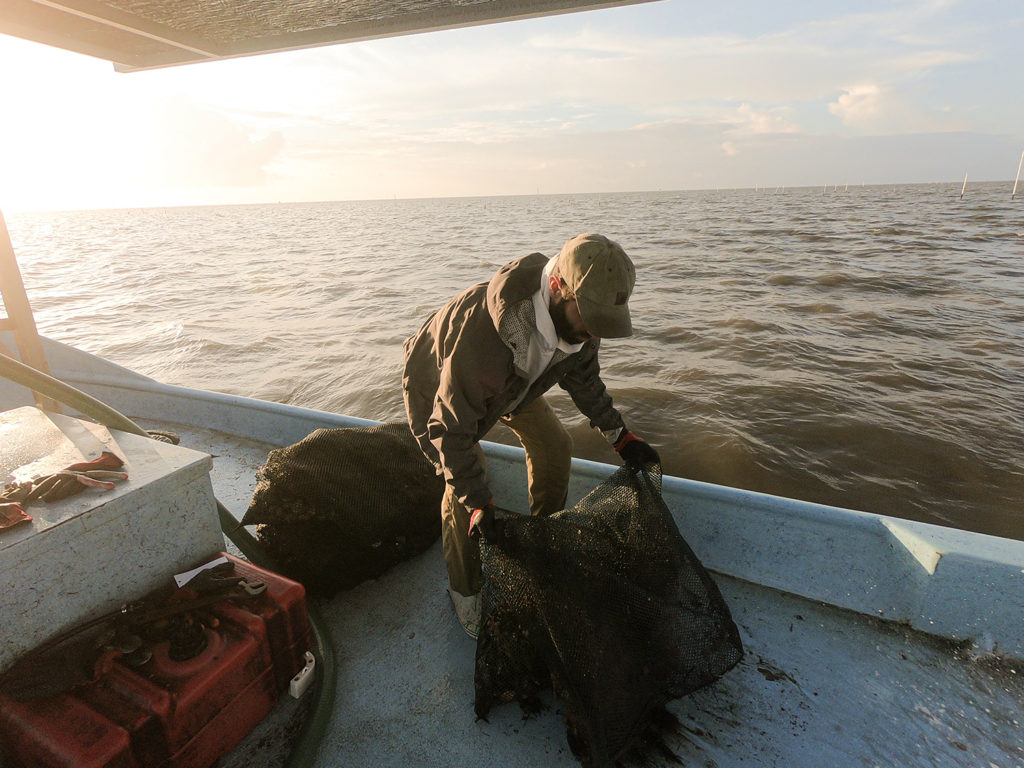
Intelligence
Farmers trade Kansas cornfields for Florida clam beds
The Stones came to Florida without experience in clams and no ties to the fishing community. Their backgrounds in farming, however, are proving valuable.
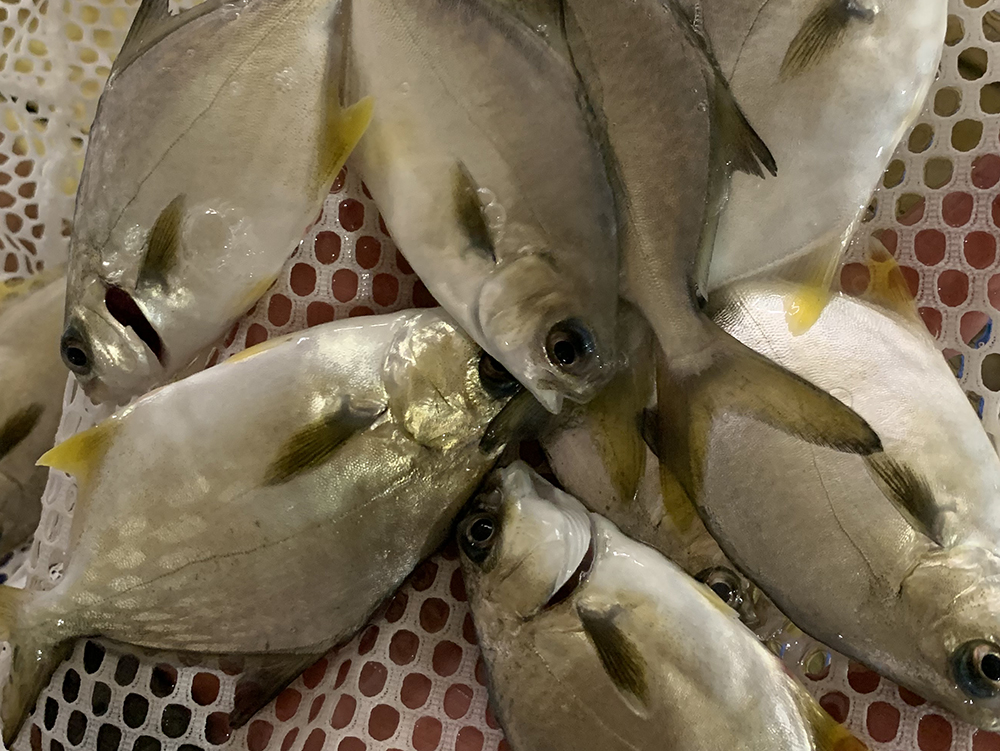
Intelligence
Full speed ahead for Florida pompano RAS farm
While many attempts to farm Florida pompano have fallen short, Joe Cardenas is undaunted, confident that recirculating aquaculture systems are the key.
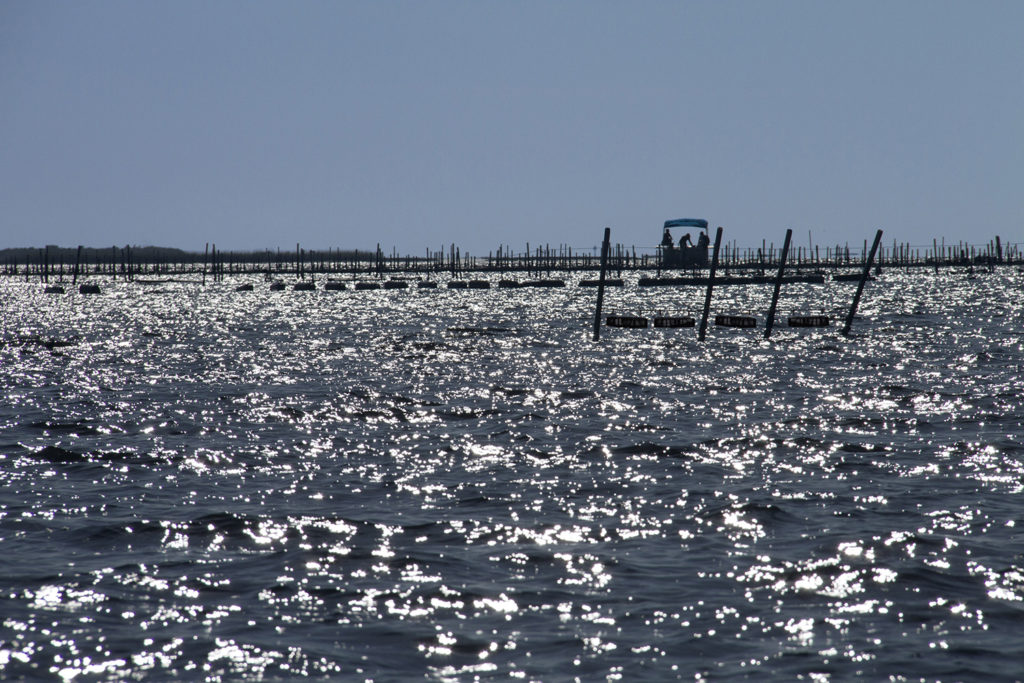
Intelligence
Hatching a plan for Florida oyster farming
Panacea Oyster Co-op and Pensacola Bay Oyster Co. each aim to open dedicated oyster hatcheries in Florida, which could have a significant impact on the state’s aquaculture industry.
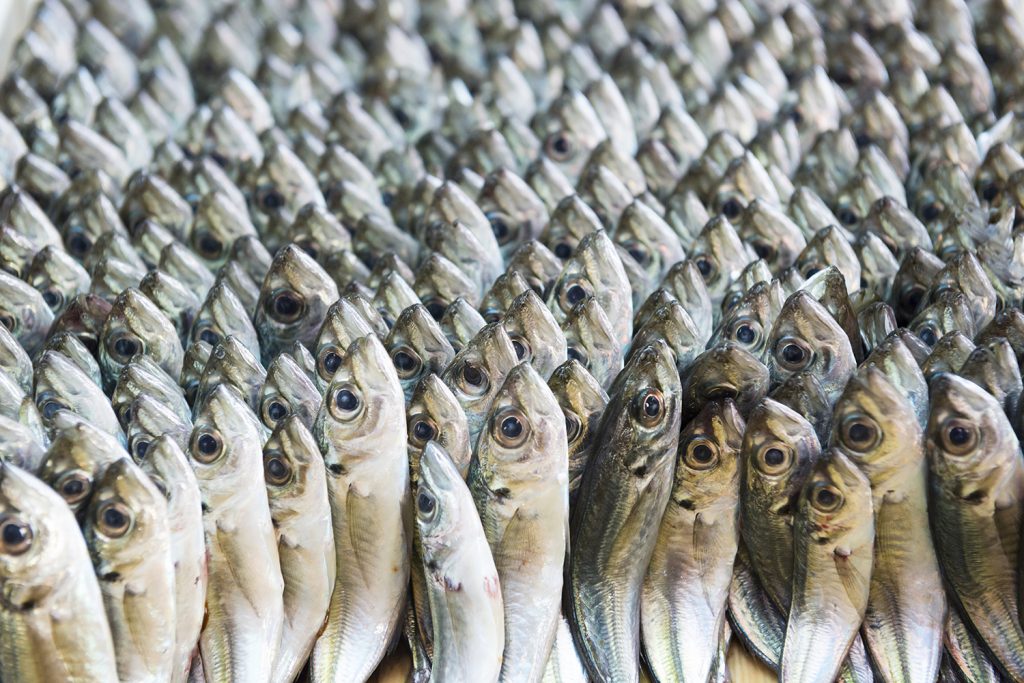
Intelligence
Can handheld DNA testing technology stand up to seafood fraud?
The MasSpec Pen, developed to diagnose tumors, can identify fish species by touching the tip to a sample. But the species database is lacking.


